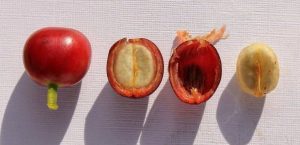Is sugar making us fat?

Sugar and its contribution to Australia’s obesity epidemic is a hotly debated issue but eliminating sugar from your diet may not be the “magic bullet” you were hoping for, or the single fix to the obesity crisis that the media keeps selling us.
It’s easy to get stuck in an endless debate on the pros and cons of sugar consumption, but the reality is there is no one quick fix or one single factor that will halt the rising tide of an Australian obesity epidemic. Many factors are at play and understanding this is the key to losing weight. Let’s take a moment to remember why we are having this conversation.
Why all the fuss about obesity?
Two out of every three adult Australians are either overweight or obese and one in four children aged between two and 17 years are also overweight or obese
Disturbing statistics like this are bandied about often in the media. A new study here… some new data there. We all know being too fat is not healthy, but how many of us realise just how harmful carrying this excess weight is?
Obesity in Australia is a major risk factor for cardiovascular disease, type 2 diabetes, osteoarthritis and cancer.

Based on 2014/15 data, the prevalence of cardiovascular disease (diseases of the heart or blood vessels) was 1 in 5, approximately a quarter of the population were living with obesity-related type 2 diabetes and over 2 million Australians were living with obesity-related osteoarthritis.
And let’s not forget the Big “C”. More than 30,000 Australian cases of colorectal, uterine or kidney cancer are linked to obesity.
- The burden on the Australian economy is staggering with an estimated $58 billion in costs accumulated in 2008 alone. This cost outweighs our expenditure on Australian schools and continues to rise.
- Even more alarming however, is the cost on the individual and their quality of life, and the number of preventable deaths that take place in Australia each year.
Is the message of the alarming health risks associated with being overweight getting through? It is not about vanity, it is about quality of life and increased risk of death. Our calorie intake determines our weight and sugar contributes to our calorie intake, so reducing our sugar intake is certainly an important aspect of achieving and maintaining a healthy weight.
So what is sugar and where is it hiding?
Sugar is just a term used to describe the sweet stuff. With more than 50 different names for sugar it is easy to see how it often escapes detection. Sugar occurs naturally in fruits, starchy vegetables and dairy products, it can be granulated or in liquid form and it is often added to processed foods.
The Sugar ‘Beat Up’
Celebrities and the media are all keen to sell us their story on the evils of sugar. A new book coming out or just a great hook for a story, sugar is now deemed “toxic” and the health advice just keeps coming. Sugar has been singled out as driving the increase in chronic metabolic diseases. We know the rate of obesity is increasing at an alarming rate, and without doubt sugar plays a part in this trend, but narrowing the focus to one thing is missing the chance to really address what is making us fat. It would be reasonable to expect that the intake of sugar has increased with the rise in obesity but interestingly recent studies have shown our consumption of sugar has actually decreased, while rates of overweight and obesity continue to climb.
If it isn’t all about sugar, what is making us fat?
As a dietitian I give dietary advice every day for many health conditions, but most commonly, people see me to help them lose weight. A reduction in sugar intake as a part of a weight loss plan is sensible, especially if a person is regularly having an excessive amount. There are many people who have experienced great success with reducing sugar, but for many people their excess energy intake is not just from sugar or added sugar and they require a broader approach.
Everyone is different. We hear that nuts are so healthy, so we add them to our diet, but for the pistachio snacker that half a packet a night in front of the television could be their undoing. The couch potato needs to get off the couch and exercise more and the after-work drinker needs to drop the everyday consumption and leave the alcohol for the weekend or special occasions. I am constantly reminded that one size does not fit all. The simple solution: A balanced diet with an individualised approach to finding out what is contributing to your weight gain, and a plan tailored to your needs.

Where to from here?
Move more, eat less
It’s not sexy. It won’t make the celebrities rich or hit the headlines but eating a portion controlled, balanced diet is the way to go for weight loss. Keeping an eye on reducing your overall energy intake will get results. Today, this may seem a somewhat old-fashioned concept, but it is the reality of what works in the end. And remember what your mother always said, “eat your veggies.” A whopping 95% of Australians still don’t meet the recommended daily intake for vegetables. So, let’s all go harder on the veg. and see our health improve and our waistlines reduce.
For more information, contact us here or book an online appointment






